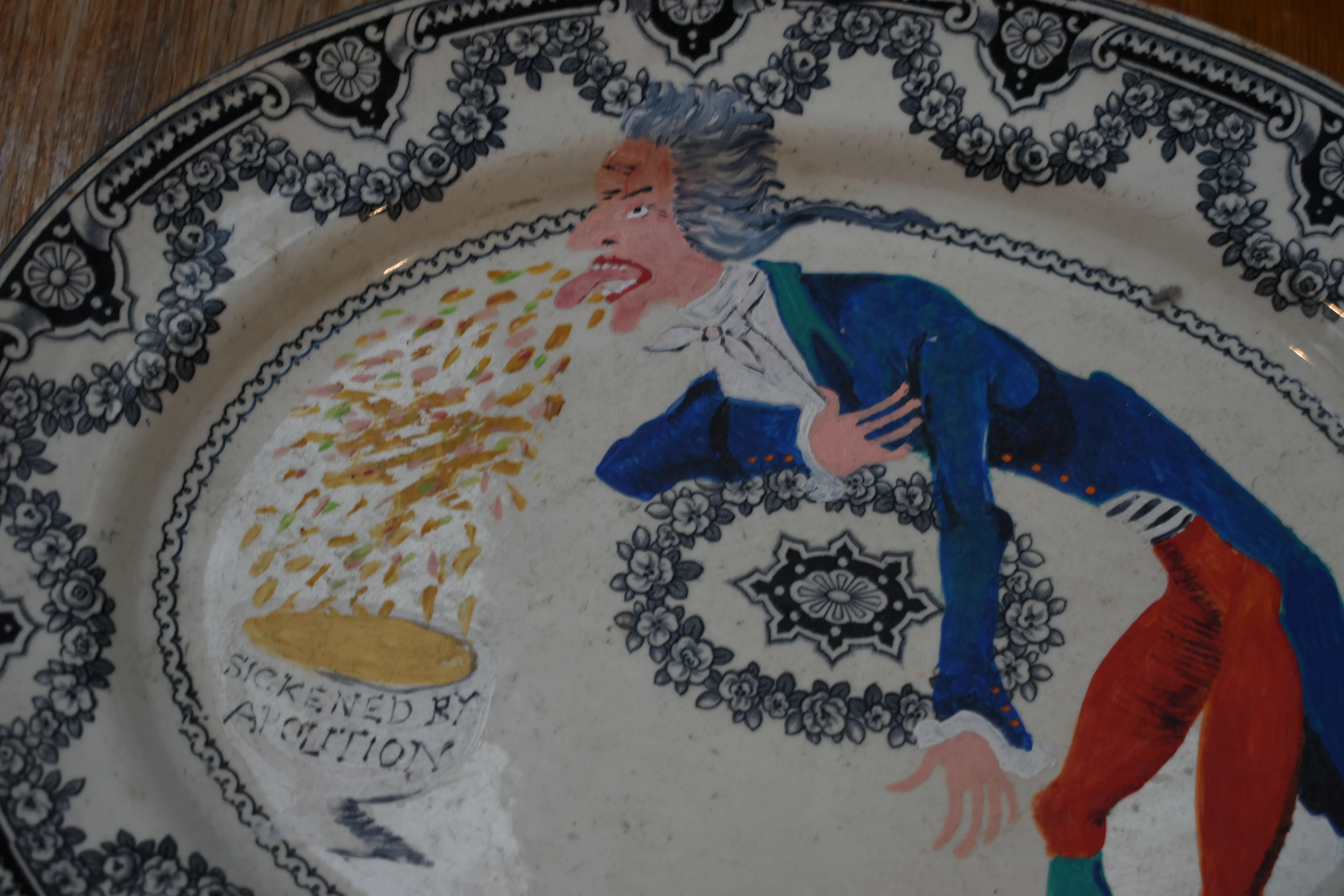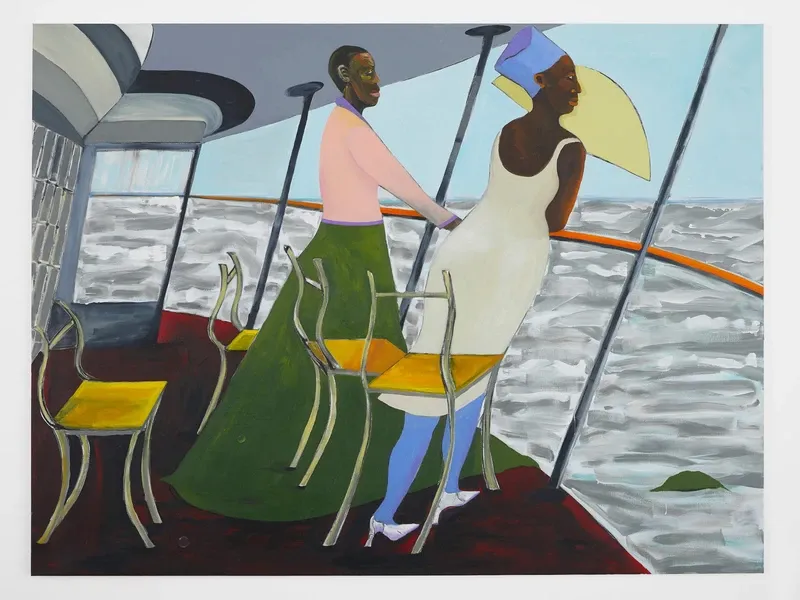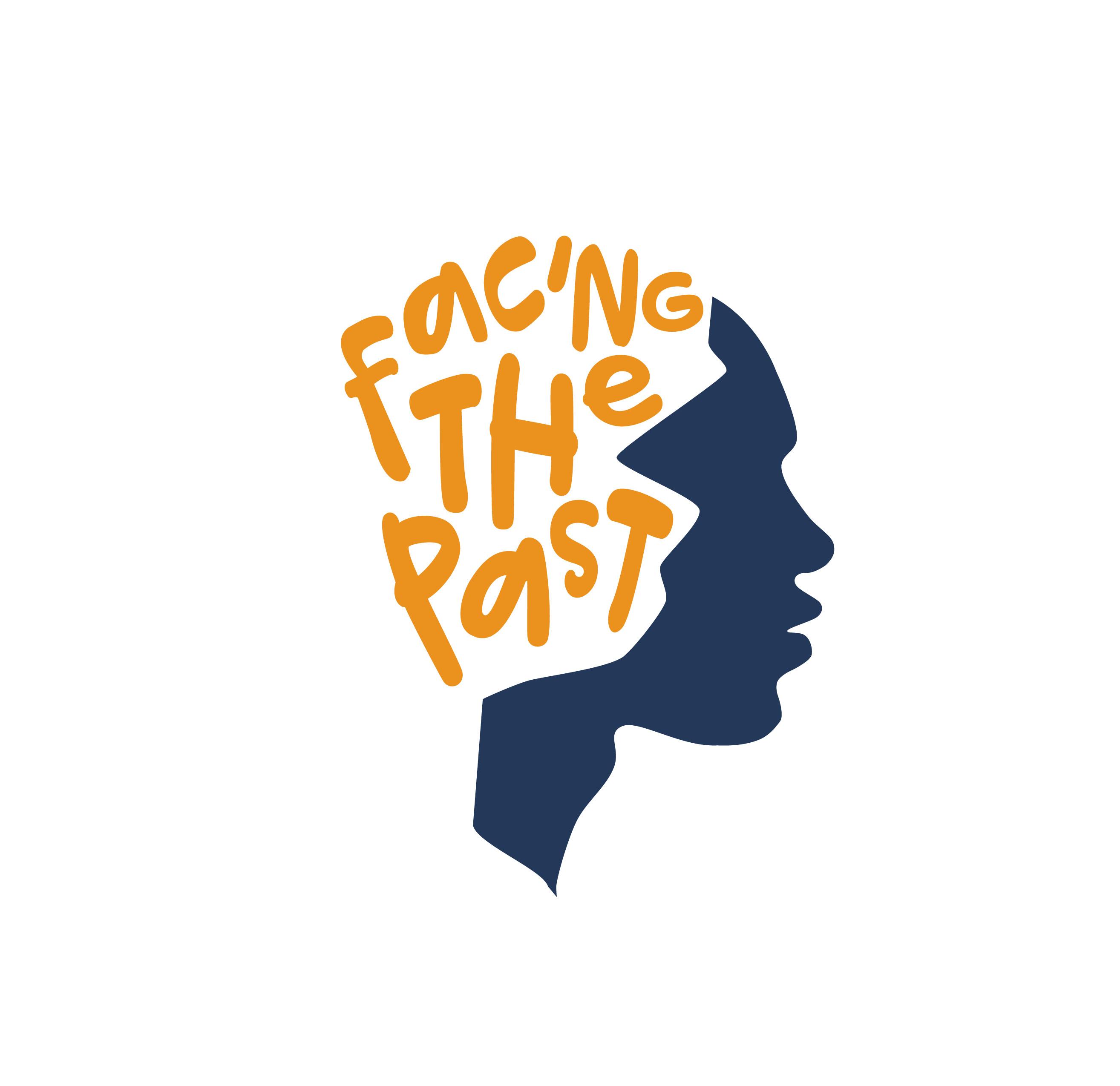
Facing the Past - consultation with communities. Pupils from Lancaster Royal Grammar School, Lancaster Central High School and Ripley St Thomas Church of England Academy in conversation with Griselda Pollock and Professor Alan Rice.
These three high schools came together to discuss how to acknowledge the past, impact the present and shape the future. Griselda Pollock critiqued Lubaina Himid's figurative paintings unpacking the subject of the works - individuals with their own identity, pleasures and fears. The layers of meaning in Lubaina’s work were peeled back to reveal messages of injustice conveyed through referential and nuanced imagery. Pupils were invited to consider creative practice as an invitation to ask people to think differently - in this case, to counter the inhumanity suffered by the enslaved with collective compassion.
Professor Alan Rice showed the pupils sculptural pieces from Lubiana Himid’s Swallow Hard: The Lancaster Dinner Service. He discussed how difficult it is to think about the heritage of slavery without feeling uncomfortable or ‘swallowing hard’ and made a direct link to the slave ship ‘Swallow’ sold in Lancaster in 1756. A discussion of an image of abolition - the kneeling, chained enslaved African and the words: Am I not a man and a brother? explored the controversy this image generates in presenting a black person pleading for freedom rather than actively rebelling against slavery.
Programme Director Kit Abramson and Griselda Pollock discussed the difficulty some people have in facing the past and/or giving a face to the past; how acknowledging the legacies of slavery and racism in society requires entering into a deeply uncomfortable space, processing horrendous heritage and taking action to address the uneven situation that persists.
Wednesday 26th April 2023, prime minister’s questions:
Labour MP, Bell Ribeiro-Addy, “This month marks 23 years since the passing of the late, great Bernie Grant, a former member of this house, and the founder of the UK reparations movement in the UK. In his last prime minister’s questions before his death he asked for an apology to the people of African descent, living and dead, for our country’s role in slavery and colonialism.But since then, prime ministers and heads of state have only ever expressed sorrow or deep regret. These are not sentiments that are befitting one of the greatest atrocities in human history. There has been no acknowledgement of the wealth that has been amassed or the fact that our country took out the largest loan it ever has, to pay off the slave owners, and not the enslaved. Will he do what Bernie Grant asked all those years ago, what I have asked, and what countless others have asked since, and offer a full and meaningful apology for our country’s role in slavery and colonialism, and commit to reparatory justice?"
Prime Minister Rishi Sunak: “No. What I think our focus should now be on doing is, of course, understanding our history and all its parts, not running away from it, but right now making sure that we have a society which is inclusive and tolerant of people from all backgrounds. That’s something that we on this side of the house are committed to doing and will continue to deliver, but trying to unpick our history is not the right way forward, and it’s not something that we will focus our energies on.”
View the full talk here: https://www.facingthepast.org/map/records/griselda-pollock-talk

H.M.S Calcutta by Lubaina Himid, 2021 - one of the artworks discussed by Griselda Pollock.

